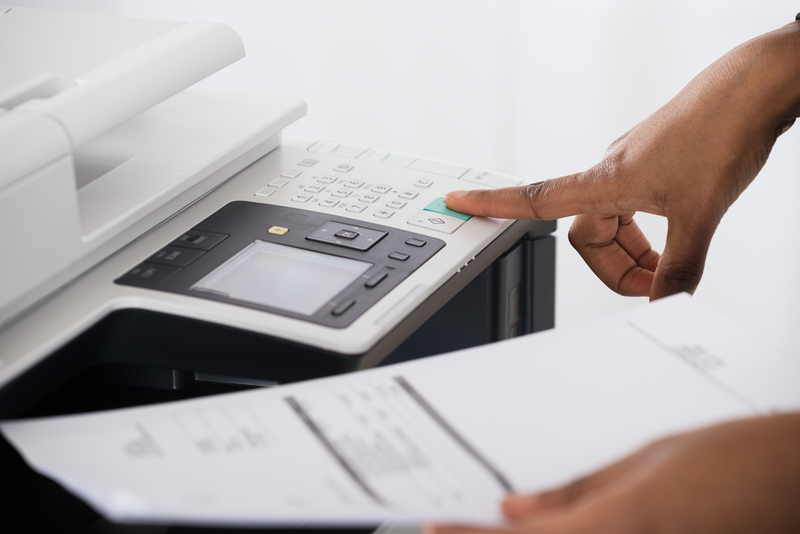Ultimate Money-Saving Tips for Handling Bulky Waste Items
Every homeowner or renter inevitably faces the challenge of disposing of bulky waste items. Whether you're tackling a home renovation, spring cleaning, or moving, managing oversized junk in a cost-effective manner requires strategy. The good news? With a little knowledge and planning, you can save money handling bulky waste while still being environmentally friendly and efficient. Below, discover the ultimate money-saving tips for bulky waste disposal, methods for responsible removal, and ways to prevent unnecessary expenses.

Why Managing Bulky Waste Efficiently Matters
Bulky waste includes items too large for regular trash pickup: old furniture, mattresses, large appliances, carpets, and renovation debris. Inefficient disposal can cost you time, money, and even result in fines if you neglect local regulations. By adopting smart strategies, you not only lower bulky waste removal costs but contribute positively to your community and the environment.
Common Bulky Waste Items
- Furniture: Sofas, beds, tables, chairs, dressers.
- Large Appliances: Refrigerators, washing machines, dryers.
- Mattresses and box springs
- Doors, carpets, and large rugs
- Construction and renovation debris
- Garden waste such as tree branches and stumps
Money-Saving Strategies for Bulky Waste Removal
1. Plan Ahead and Sort Smart
The cost of bulky waste disposal can stack up quickly if you're unprepared. Start by conducting a thorough assessment of what you need to dispose of. Sorting items by type (e.g., metal, wood, electronics, textiles) not only streamlines the process but may also help you identify items that can be recycled, sold, or donated.
- Separate recyclable materials like metal and electronics.
- Group reusable items for donation or resale.
- Bag or bundle materials to save on pickup fees if charged by volume.
2. Maximize Free Disposal Options
Before paying for a bulky waste collection service, explore free or low-cost alternatives:
- Council Collection Days: Many municipalities offer an annual or biannual free bulky waste pickup. Check your local city's calendar online or call your waste management department.
- Community Clean-Up Events: Neighborhoods may organize events with dumpsters or collection centers for large items.
- Retailer Take-Back Programs: If you're replacing an appliance or furniture, many retailers offer free removal of old items with the delivery of your new purchase.
- Local Transfer Stations: Some areas offer residents limited free drop-off days for large waste at local depots.
3. Sell or Donate Usable Items
One person's trash is another person's treasure! Reducing the volume of your bulky waste by selling or donating items in good condition can save you money and even earn you cash.
- Sell Online: Platforms like Facebook Marketplace, Craigslist, and OfferUp are ideal for offloading bulky furniture, bikes, or appliances.
- Donate to Charities: Organizations such as Habitat for Humanity Restores, Goodwill, and local shelters often accept large household goods and may even offer free pickup.
- Host a Garage Sale: Even if items are worn, bargain hunters may be willing to pay to take them off your hands.
4. DIY Dismantling and Removal
Paying a professional service to dismantle large items can be expensive. Save by doing it yourself:
- Take Apart Modular Furniture: Disassemble beds, tables, and shelving units to save space and reduce disposal fees (often based on volume).
- Break Down Cardboard and Packaging: Flatten boxes and bundle loose materials.
- Use your own vehicle (truck or trailer) for hauling, if possible, to eliminate collection charges.
5. Compare Local Bulky Waste Collection Services
When free options aren't available, it's time to evaluate service providers. Costs can vary significantly, so:
- Request quotes from multiple companies.
- Inquire about discounts for combined items or off-peak pickups.
- Read reviews for hidden fees or unfair charges.
6. Pool Resources with Neighbors
If several households in your building or street need to dispose of bulky items, consider a group approach:
- Organize a Bulk Pickup: Many companies offer lower rates for large, consolidated loads.
- Shared Dumpster Rental: Split the cost among neighbors for a more affordable solution.
Eco-Friendly and Budget-Conscious Alternatives
Participate in Recycling Initiatives
Many components of bulky waste--including metals, plastics, and electronics--are recyclable. Local recycling centers may accept these materials for free or at a reduced rate:
- Metals (bed frames, appliances)
- Electronics (computers, TVs, microwaves)
- Wood and construction debris
Rent or Borrow Equipment for DIY Disposal
Sometimes, renting a truck or a small trailer for a day is cheaper than hiring a professional crew. Consider:
- Renting a Pickup Truck: Ideal for transporting fragmented furniture or appliances to drop-off centers.
- Borrow a Trailer: Check if your local tool rental shops, friends, or neighbors have one you can use.
Creative Repurposing of Bulky Items
Think outside the box before heading to the dump:
- Transform old dressers into tool storage, garden planters, or shelving units.
- Use broken concrete or bricks as landscaping features.
- Repurpose a mattress frame for a DIY compost bin or garden trellis.
Key Tips to Keep Bulky Waste Costs Down
Prevent Bulky Waste Build-Up
The best way to save money on bulky waste disposal is to minimize waste from the start:
- Opt for durable, multi-use furniture and appliances that last longer.
- Maintain and repair items to extend their usable life.
- Consider borrowing or renting large tools and equipment instead of buying.
- When purchasing new items, inquire about take-back or recycling programs offered by retailers.
Stay Informed About Local Regulations
Improper disposal of bulky waste can result in fines or refusal of service. Always:
- Check what items your local waste management will accept curbside.
- Confirm scheduled pickup days to avoid missed collections, which could incur extra fees.
- Learn about hazardous items (e.g., refrigerators with coolant, electronics with batteries) that require special handling.

Frequently Asked Questions About Budget Bulky Waste Management
How Can I Dispose of Large Furniture Without Paying?
Check with local charities for free pickup services, list items for free on community platforms, or wait for municipal collection events. Be sure the items are clean and usable to increase the chance of acceptance.
Are Mattresses or Appliances Accepted in Regular Trash?
Generally, mattresses, refrigerators, and large appliances are not accepted with regular garbage due to size or environmental hazards. Many cities require a special pickup request or trip to a designated recycling facility.
What Is the Cheapest Way to Handle Construction Debris?
Whenever possible, salvage usable materials (doors, wood planks) for resale or reuse. For unrecyclable debris, compare rates at local landfills and look for shared dumpster rental deals.
Can I Get Fined for Illegally Dumping Bulky Waste?
Yes, illegal dumping can lead to hefty fines, legal trouble, and community backlash. Always use approved disposal routes.
Conclusion: Handle Bulky Waste Responsibly & Economically
Bulky waste items can be a logistical and financial headache, but with careful planning and resourcefulness, you can save money handling large waste while protecting the environment. Whether by taking advantage of community programs, selling or donating reusable items, or adopting savvy DIY tactics, there's a cost-effective approach suited to every situation. Remember: the key to budget-friendly bulky waste disposal is staying informed, proactive, and open to creative solutions.
Related keywords: saving on bulk refuse removal, budget bulky item disposal, cost-effective bulky waste collection, cheap furniture disposal, low-cost junk hauling, free bulky waste disposal tips
Start applying these ultimate money-saving tips for bulky waste items--your wallet and your planet will thank you!
